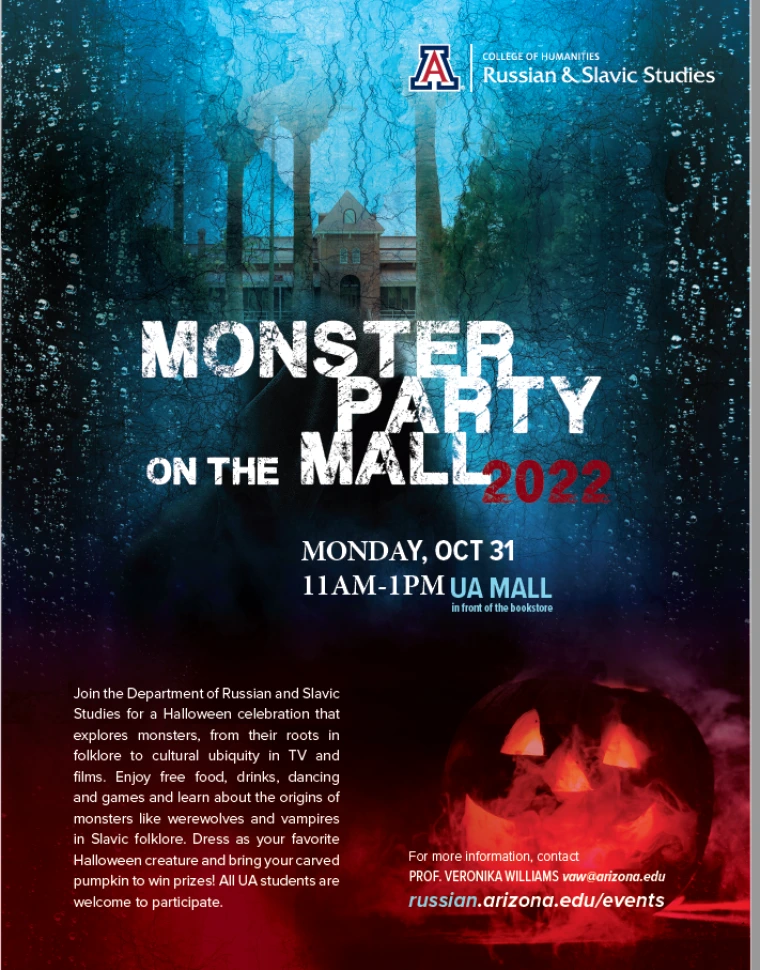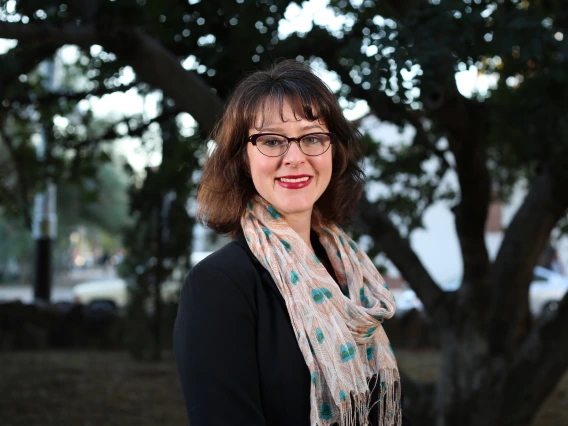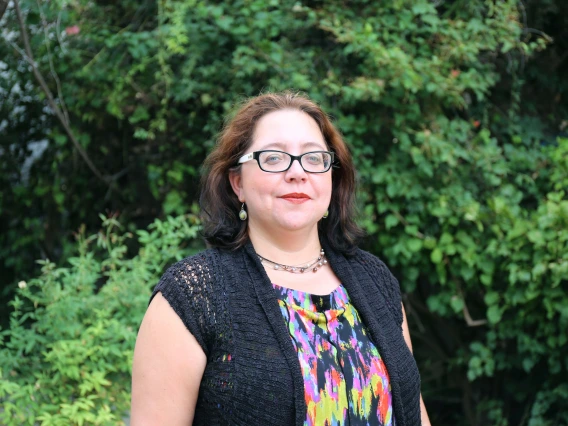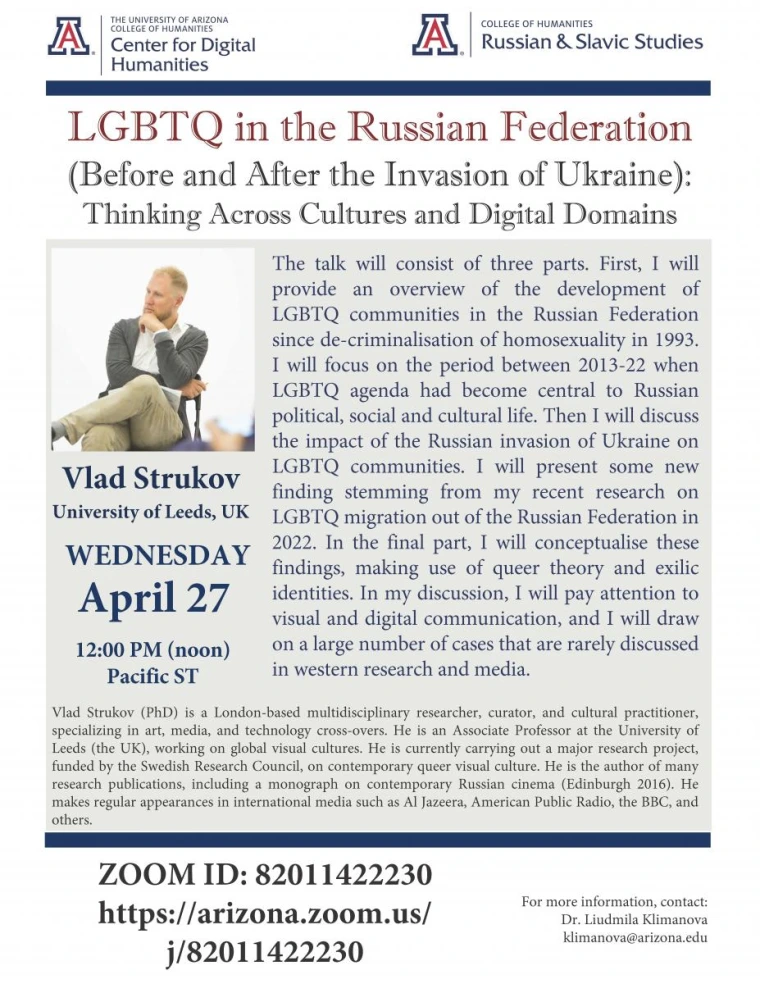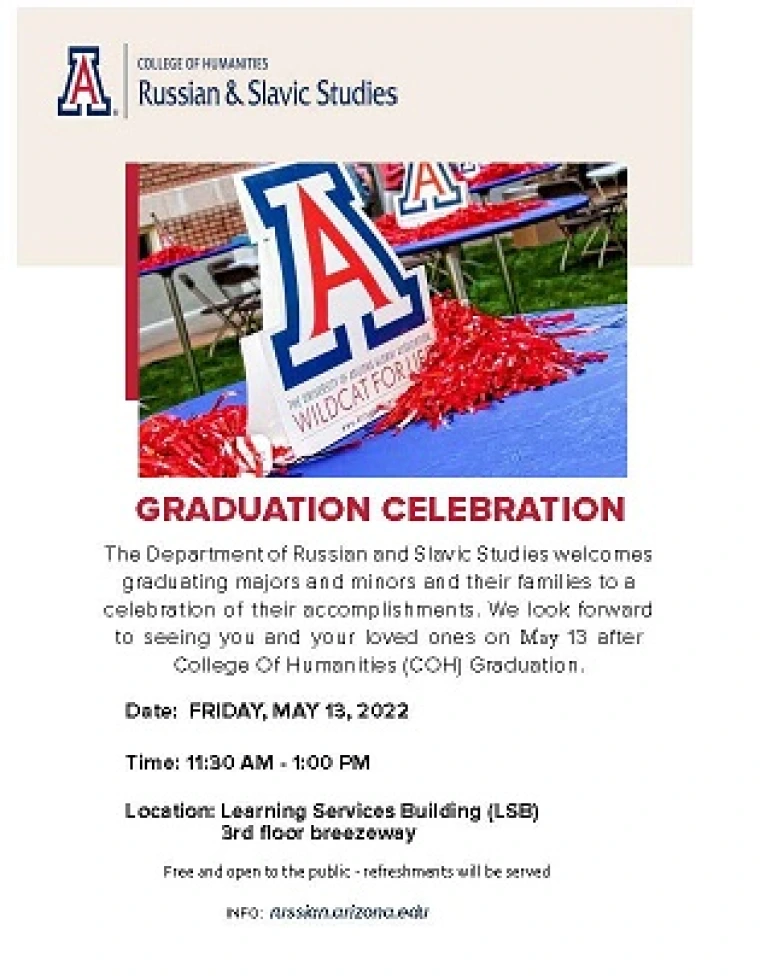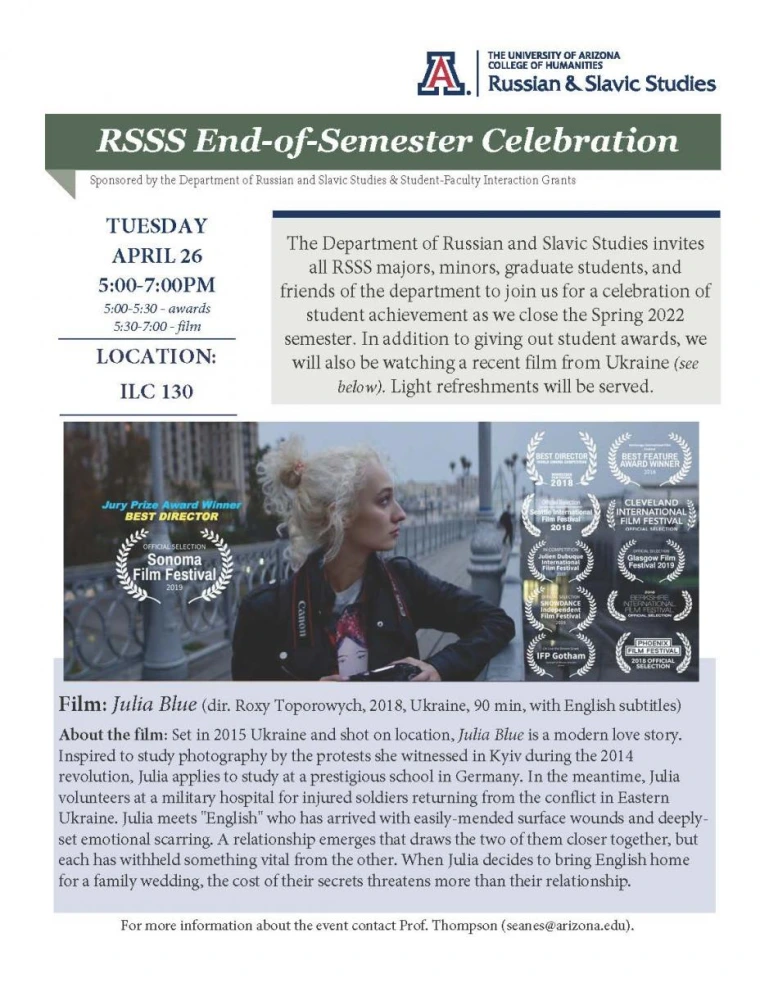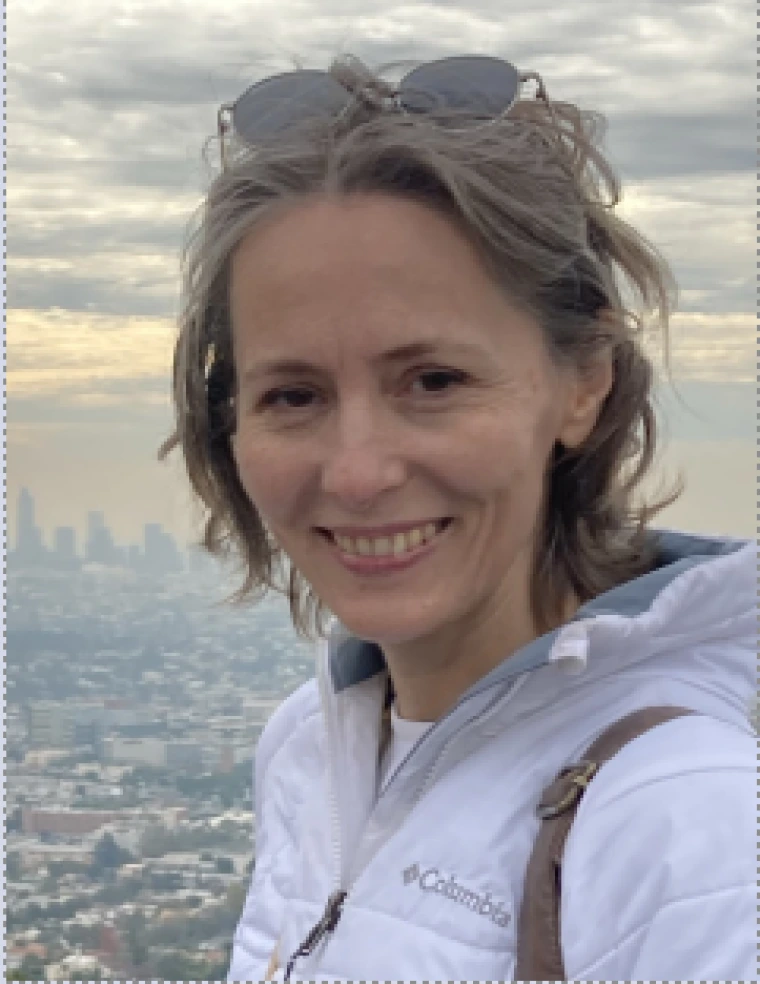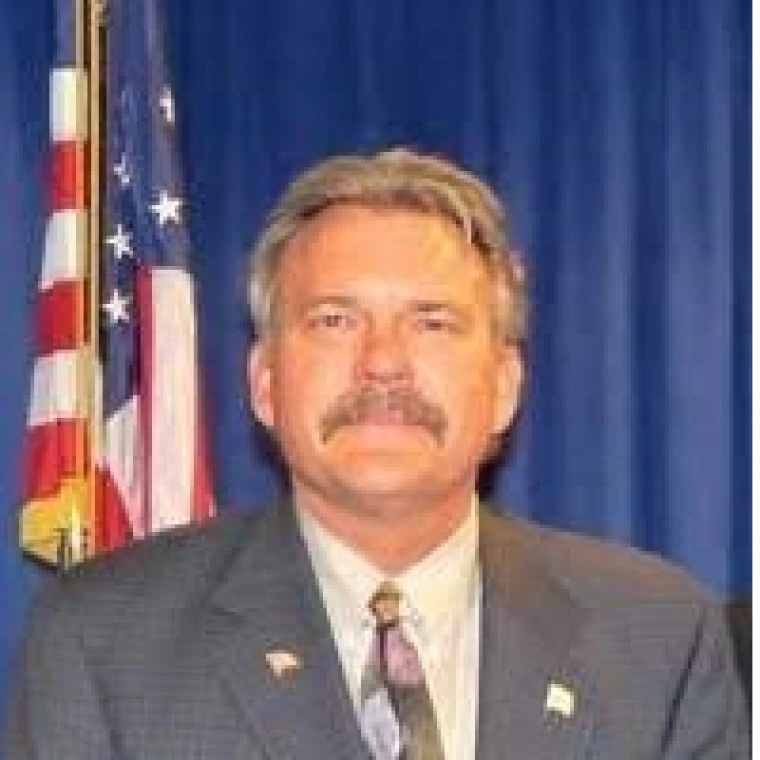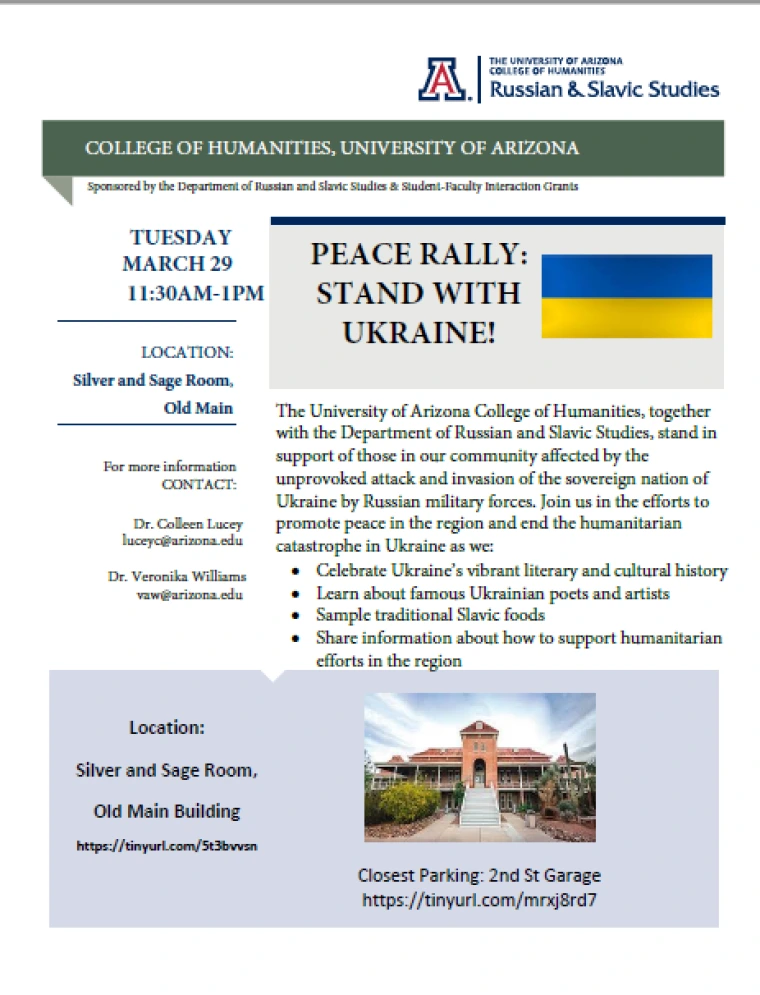Dr. Liudmila Klimanova, Assistant Professor in the Department of Russian and Slavic Studies, has been awarded the University’s 2022 Leicester and Kathryn Sherrill Creative Teaching Award.
Announced by the Office of the Provost, the award is given by the University of Arizona Foundation in recognition of “unusually outstanding teaching methodologies; a demonstrated effort to ensure the quality of students' learning experiences; and consistently high scholarly standard in both rigor and currency of course content.” Klimanova will receive a $2,500 award and the placement of a plaque in the Donna Swaim Honors Lounge in the Student Union Memorial Center.
“Dr. Klimanova is a dynamic and engaging teacher who speaks to students on multiple levels, including hands-on experiences, small group activities, and discussions. Her presence and charisma foster a strong learning community, where every student’s contribution is received with respect and appreciation,” wrote John Leafgren, Head of the Department of Russian and Slavic Studies, in a nomination letter.
Leafgren described Klimanova’s innovative teaching methods, which have transformed the department’s language program and placed it among the nation’s largest and most acclaimed.
“Since her arrival here at the University of Arizona, Dr. Klimanova has played a crucial role in the modernization of our language and culture programs by expanding our pool of students from diverse cultural and socio-economic backgrounds, positioning our department among the nation’s pre-eminent Russian Studies programs,” Leafgren wrote.
Leafgren detailed Klimanova’s work as an expert in educational technology, a leader in research-based language teaching, and a pedagogical innovator. Her versatility in the department extends to in-person or online classes, small graduate seminars or large general-education courses, and connects students with programs and organizations outside the department for real-world experience.
“Dr. Klimanova’s renowned reputation and experience, honed by years of pedagogical practice, superlative teaching methodology, and truly unique and creative engagement of her students, already reflect prestige for UA,” Leafgren wrote.
One nomination came from Betül Czerkawski, a professor in the College of Applied Science and Technology who enrolled in Russian language courses after a year-long Fulbright scholar grant to Ukraine, and has taken two courses with Klimanova, including a RSSS 308 Russian Communication course that involved working with NGOs in the former Soviet Republics.
“I have never had such an immersive and innovative learning experience in any of my college classes, and I have taken many in the past 30 years,” she wrote. “In Dr. Klimanova’s classes, it is the innovative instructional practices and design of the learning activities that come to the forefront not the technology. Everything she does in class has a purpose, while placing the student to the center of each learning activity.
Klimanova said her teaching approach rests on five pillars: student-centrism, collaboration, community orientation, interdisciplinarity, and inclusivity.
“Student-centered teaching means creating an environment in the classroom where students feel comfortable and encouraged to share their life experiences, suggest topics for class discussions that are rooted in their individual life stories, take over the instructor’s role and teach one another,” she said.
In one course, Klimanova connected her students virtually to students in a remote border city in Northern Kazakhstan for a virtual language and cultural exchange program in which the students collected and discussed stories from their local regions and created multimodal narratives about their experiences.
In that course, Klimanova seamlessly established a virtual learning environment for students on opposite sides of the world, nearly two years before the COVID-19 pandemic forced everyone else to adapt to virtual tools, wrote former student Cody Sinks.
“What left the greatest impression on me as an undergraduate student was that Dr. Klimanova invited me back for an in-depth interview after our semester was complete to learn more about how I, my community, and my relationship to the Kazakh community had been affected by our semester project,” he wrote. “Dr. Klimanova’s commitment to improving her own teaching methods illustrates a growth mindset that guarantees her courses will always be adaptive to ensure the success of future students.”
In another advanced language classes, Klimanova’s students designed, published and printed a 150-page bilingual book, Russian-Speaking Arizona, collaborating with community members, learning how to publish, and working with local libraries.
“In my teaching, project-oriented activities occupy a special place and aim at engaging students’ diverse skillset,” she said. “Projects, especially the ones that lead to the creation of tangible products create important memories and instill a strong sense of accomplishment. Teaching should connect classroom experience to the community and the life outside the walls of the university.”
Currently, Klimanova is collaborating with the UA Human Rights Practice Program to co-teach a course on cutting-edge advances in human rights, with students working with NGOs and students from Kazakhstan, Kyrgyzstan and New York on real-world issues such as homelessness, gender rights and eco-tourism.
“In my teaching, I always look for ways to engage students with people and places outside the university,” Klimanova said. “Connecting classroom learning to local and global communities through experiential learning and community-based activities shows students immediate real-life applications of the knowledge and skillsets they gain in the course and expands their intellectual horizons by introducing them to current issues and problems in their own community.”
